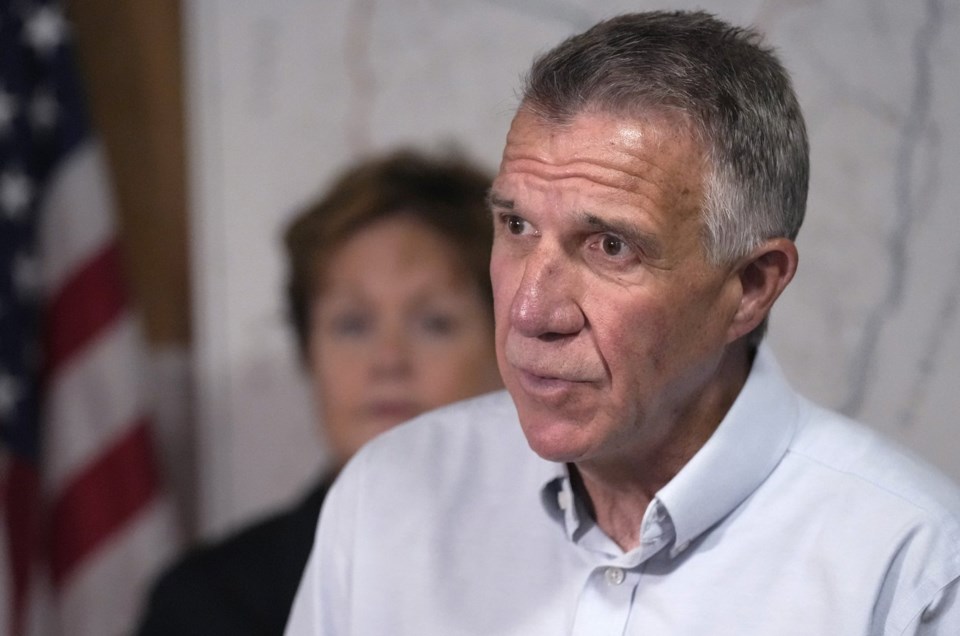Republican Gov. Phil Scott on Tuesday won reelection to leading the heavily Democratic state of Vermont.
The popular governor beat political newcomer Esther Charlestin, a Democrat-Progressive who is an educator, consultant, and co-chair of the Vermont Commission on Women. Also on the ballot were independents Kevin Hoyt and Eli “Poa” Mutino and minor party candidate June Goodband.
Scott, a 66-year-old former legislator and business owner, has been a critic of Republican presidential candidate Donald Trump — and on Tuesday said he voted for Vice President Kamala Harris, a Democrat. Scott said he was compelled to choose country over party, as he had done four years ago when he voted for Democratic President Joe Biden.
In his reelection campaign, Scott urged voters to pick what he calls commonsense legislators who he said will work with him to make Vermont more affordable and stop the increasing taxes and fees from the Legislature.
Vermont has grappled with two consecutive summers of a housing shortage and a rise in , as well as increasing property taxes to pay for schools and concerns about public safety with an increase in gun violence and drug-related crimes.
Charlestin, 34, has said Vermont needs new leadership is needed and said the state is worse off than it was in 2017 when Scott took office. A former member of her town’s selectboard, Charlestin is a first generation Haitian American.
Scott has clashed with the Democrat-controlled legislature over spending and initiatives, vetoing eight bills this past session. In response, the in June.
Scott says he worked to make Vermont more affordable while also investing in housing, public safety, mental health, climate mitigation and other issues.
“Unfortunately over the last two years ... the supermajority in the Legislature has had other ideas, passing an historic double-digit property tax increase, a new payroll tax, a 20% DMV (Department of Motor Vehicles) hike, plans to raise your home heating costs and more,” he said at a recent debate hosted by the news outlet VTdigger.
Charlestin has said Scott is wrong to blame the state’s current circumstances on legislators who are only in session part-time.
“Is Vermont in a better place than it was eight years ago? When I think of property taxes, health care, housing, affordability, the answer is clear and it’s no,” she said during the debate. “So after eight years it’s clear that Vermont needs a new direction and one that truly works for all of us, not just those at the top, but also the middle and low income, everybody.”
She was endorsed by former Gov. Howard Dean, current Lt. Gov. David Zuckerman and Burlington Mayor Emma Mulvaney-Stanak.
Scott has faced pressure this fall from municipal leaders, advocates and lawmakers after new caps imposed by the legislature to scale down the pandemic-era motel voucher program for the most vulnerable people experiencing homelessness took effect. The households will be eligible for motel housing again in the winter starting on Dec. 1.
Scott said the caps came from the Legislature in its budget proposal and $10 million was allocated to provide more emergency shelters and the administration doesn’t think that’s enough. He said in October that the state was working to set up three family shelters in Waterbury, Williston and Montpelier but advocates say the response didn’t come soon enough.
Lisa Rathke, The Associated Press



